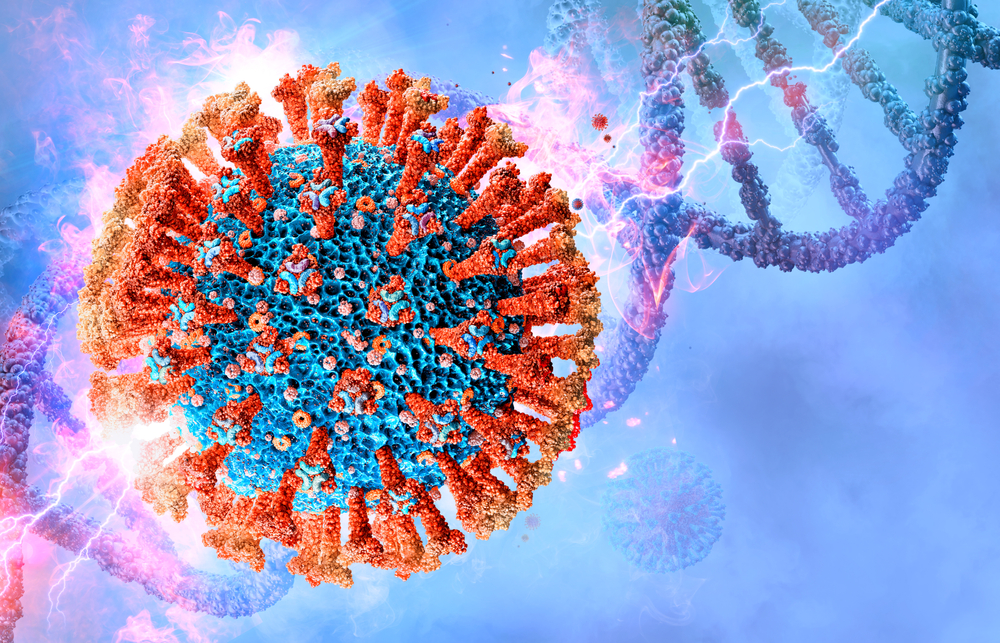This Lunar New Year, apart from the tiles on your mahjong table being shuffled around, there’s another type of shuffling around that is causing more anxiety instead of prosperity.
This is what Dr Leong Hoe Nam, infectious disease specialist from Rophi Clinic in Singapore, draws parallel to when he explains how new virus variants are “created”. He shared that new strains arise when 2 different strains of the coronavirus infect one cell. In this single cell, their genetic material undergoes “genetic reassortment”, or mahjong tile shuffling, which then creates a new variant.

Since the first Omicron variant was first reported on 24th November 2021, it has become the leading strain of COVID-19 infections worldwide. Recently, a new subvariant BA.2 of the Omicron variant, has been discovered. So, what do we know about it and how does it compare to the more dominant BA.1 Omicron variant?
Where has it spread so far?
The BA.2 variant has been detected in over 40 countries including Singapore, Malaysia, Thailand, India, & Denmark. In Thailand, it has already resulted in one death out of 14 infections reported. In Denmark, it made up around 45% of all COVID-19 cases in mid-January and it continues rising, as reported by the Danish Ministry of Health. The UK Health Security Agency has identified more than 400 cases of BA.2 in the first 10 days of 2022 and designated it as a ‘virus under investigation’. It has been expected that more countries will report BA.2 variant as infections continue to rise in the coming weeks.
What do we know about the BA.2 subvariant?
First it is important to mention that both BA.1 and BA.2 subvariants belong to the family of the Omicron variant. They share many similarities and differences.
BA.2 has a lot of mutations on its spike protein based on the existing mutation on the BA.1 subvariant. Spike proteins are the keys for viruses to invade our body cells. Such mutations happen all the time, with the majority being harmless or not making a difference to the virus or the disease itself. However, BA.2 has caught scientists’ attention as it has been repeatedly sequenced in the past month and has shown signs to become the dominant Omicron strain.
Is BA.2 more contagious?
The scientific community is still at an early stage of studying this particular subvariant. However early indications have signalled that it could be slightly more contagious than the original BA.1 subvariant. This has already been apparent since BA.2 has been able to compete with BA.1 in areas like India and Denmark. However, not enough epidemiology data has been collected to confirm this hypothesis.
A French epidemiologist told Agence France-Presse that “what surprised us is the rapidity with which this sub-variant, which has been circulating to a great extent in Asia, has taken hold in Denmark.”
Is BA.2 more deadly?
So far, there is no observable difference in age distribution, vaccination status, breakthrough infections and risk of hospitalization between the two subvariants.
People can be assured that current vaccines are still effective in protecting you and your family against the variants of COVID-19. More importantly, it still can drastically reduce your risk of hospitalization and/or having severe symptoms.
Can I still be infected with BA.2 if I have recovered from a previous infection?
To know that, scientists need to conduct tests to see if antibodies from previously recovered COVID-19 patients are able to neutralize the new BA.2 variant in the lab setting. On a cautionary note, there has been a growing number of previously recovered COVID-19 patients infected with BA.1 Omicron. With some of them having severe symptoms or ending up in ICU.
It is not clear if patients who have recovered specifically from the BA.1 subvariant could be infected with BA.2 again. More research is needed to study the immunological reaction from our body to the new BA.2 variant.
In the meantime, while the Chinese, a significant 20% of the world’s population celebrate their most important calendar event, Lunar New Year, let us remember to continue practicing responsible safe distancing measures and maintain good personal hygiene. If you’re feeling unwell, skip it. Don’t risk it.













